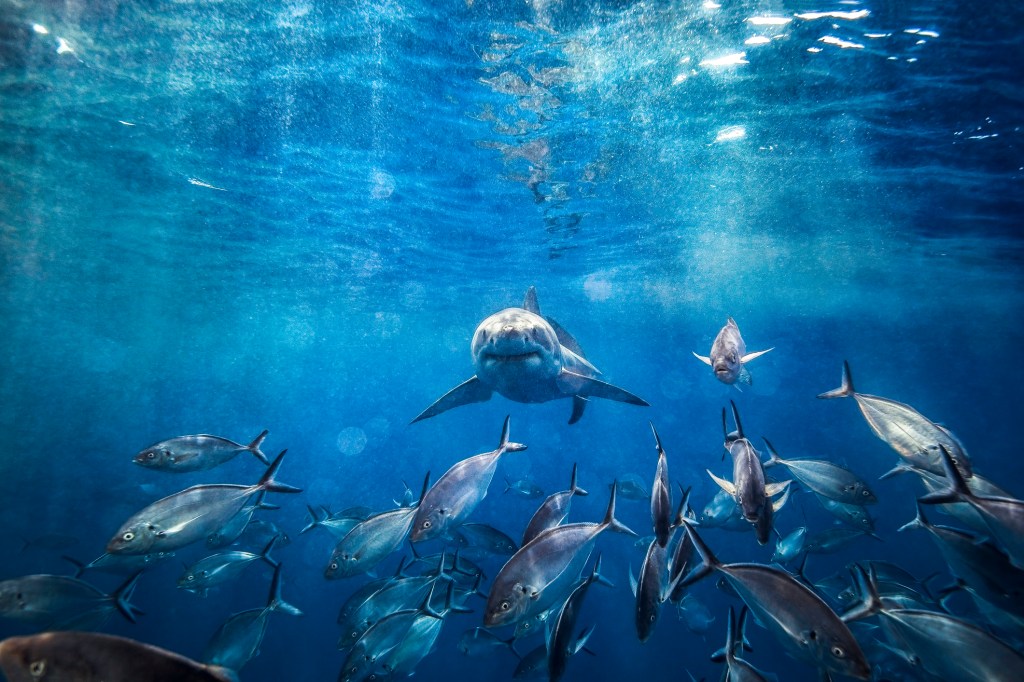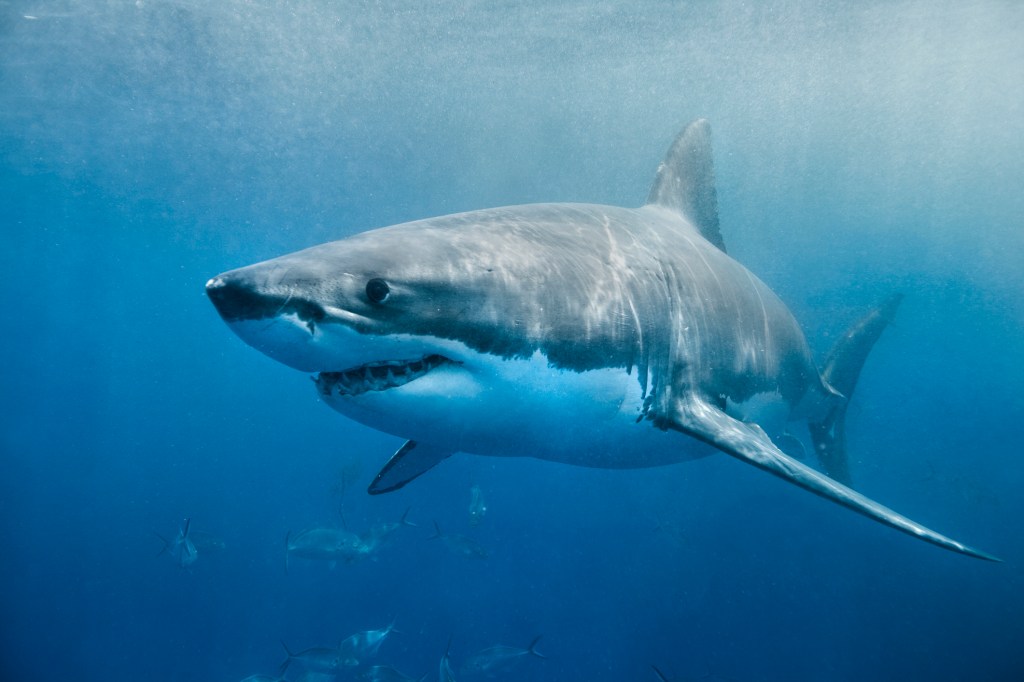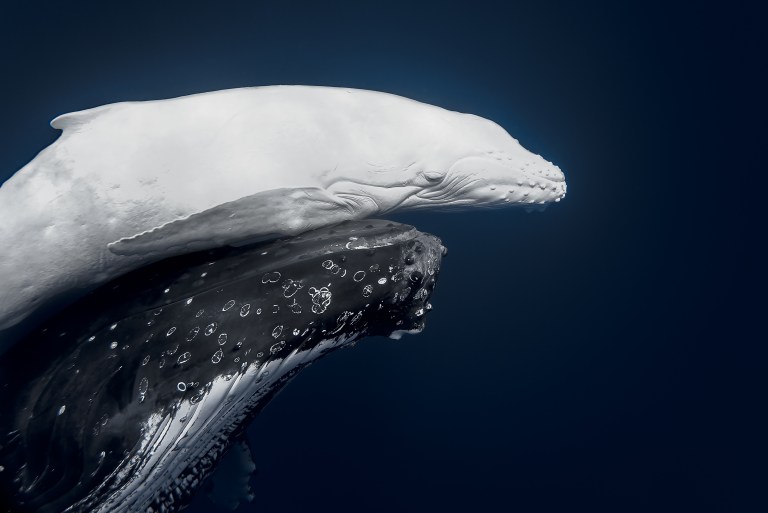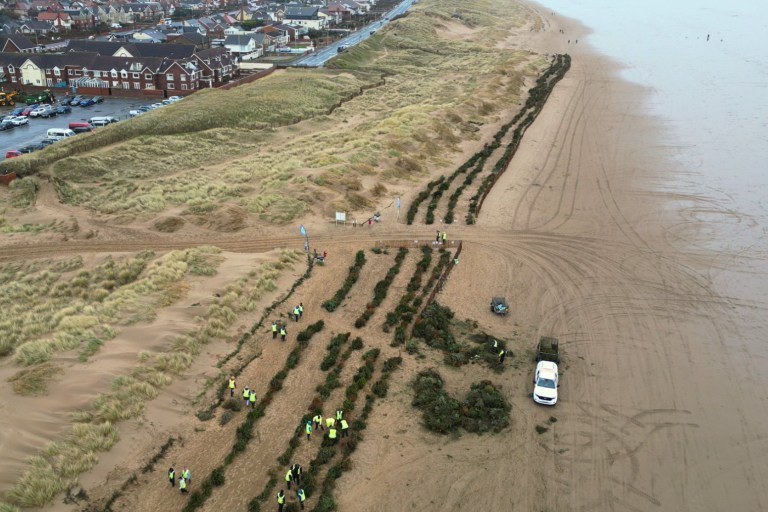Forget shark week — it’s shark season in New England. The first great white sighting of the season was confirmed May 11 when a seal with a shark bite washed ashore on Nantucket in Massachusetts, and for the second year in a row, researchers in the state will be using an innovative method to help keep swimmers safe: sticking cameras on sharks’ backs.
This summer, scientists from the Atlantic White Shark Conservancy plan to deploy camera tags to see views from sharks’ perspectives and track their locations, environments, and movements. The cameras hold sensors that log data points 10 times per second, and a day after sharks are tagged, the devices detach, float to the surface, and send their location to scientists for retrieval.
The resulting info is then transmitted to the nonprofit’s Sharktivity app, which beachgoers can use to keep an eye on (and stay away from) areas with confirmed sightings. Along with the data from camera tags, the app logs records from acoustic transmitters attached to sharks. Safety officials, civilians, and scientists can also upload photos of shark sightings. Red icons on the app illuminate when a sighting is confirmed near a public beach, for instance, while yellow ones depict real-time detection of white sharks with acoustic tags.
“It’s really important for us to understand not only how they’re feeding on seals here, but what they’re doing in the shallow water off our beaches so we can provide that information to the people, to the towns, to the beach managers, so everyone can be shark smart when they go to the beach this summer,” Megan Winton, senior scientist at the Conservancy, told CBS News.
In 2024, a total of 11 camera tags and 25 acoustic transmitters were deployed on white sharks off Cape Cod, according to a January 2025 release. The data from the devices is recorded in the AWSC White Shark Catalog, “one of the largest photo-ID databases in the world” that holds more than 700 individual sharks.
“We’re using the latest and greatest in shark spy technology, as I like to call it, to learn more about the movements and the behaviors of these animals here when they’re off of Cape Cod as well as when they move north into Canadian waters,” Winton told CBS News.
Beyond keeping beachy waters safe, the Conservancy aims to use this information to examine the relationship between sharks and fishermen. The former are also a threat to the latter’s catches — case in point, this 2018 video of a 12-foot great white snatching a caught striped bass off a fisherman’s line.

“Every year we get more and more reports of white sharks stealing fish off of fisherman’s lines because for a shark that’s a free snack, right?” Winton said. “And who doesn’t like free snacks?”
While it’s important to stay shark smart, attacks are relatively rare — a 2018 fatality caused by a bite off a Cape Cod beach was Massachusetts’ first such death in over 80 years. On the flip side, the Conservancy says that great whites “play a critical regulatory role in maintaining the health of our ocean’s ecosystem” by maintaining necessary food web dynamics. The nonprofit’s work is twofold: supporting conservation efforts while keeping the public safe.
“Every bit of information contributes to our ongoing, long-term monitoring efforts, helping us build a more comprehensive understanding of white sharks and their behavior,” Winton said in the January release. “This work is essential for conservation and public safety initiatives, and we’re excited to continue building on these findings in the years to come.”
RELATED: 30-Year Shark Study Makes “Surprising” Findings About the Marine Animals’ Breeding, Longevity












